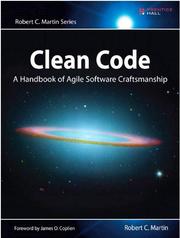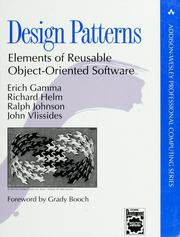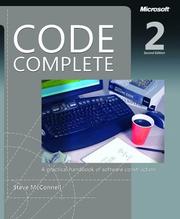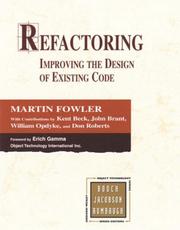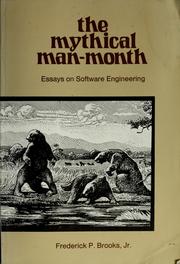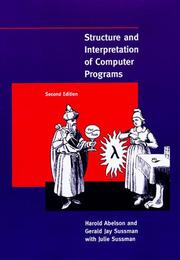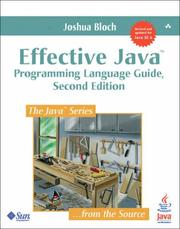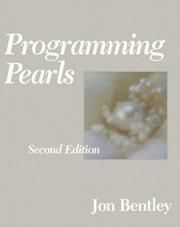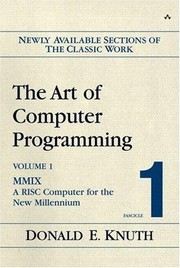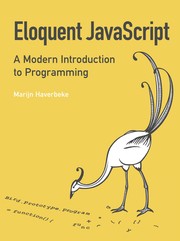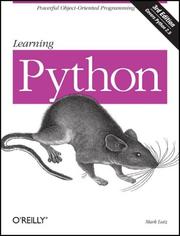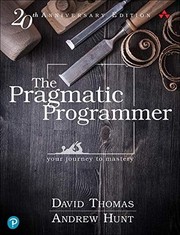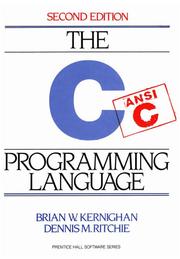Are you looking for the ultimate guide to programming? Look no further! Whether you’re a beginner or an experienced developer, these 20 best books about programming are essential for your bookshelf. From classic titles to the latest releases, these books cover a wide range of programming languages and concepts. Dive into the world of coding with these must-reads that offer in-depth knowledge, practical examples, and expert insights. Whether you want to master a specific language, learn best practices, or explore advanced topics, there’s a programming book for you. Let’s explore the top picks for the best book on programming!
Contents
- 1 20 Best Programming Books
- 2 Clean Code: A Handbook of Agile Software Craftsmanship
- 3 Design Patterns: Elements of Reusable Object-Oriented Software
- 4 Code Complete: A Practical Handbook of Software Construction
- 5 Introduction to the Theory of Computation
- 6 Refactoring: Improving the Design of Existing Code
- 7 The Mythical Man-Month: Essays on Software Engineering
- 8 Structure and Interpretation of Computer Programs
- 9 Effective Java
- 10 Programming Pearls
- 11 The Art of Computer Programming
- 12 Eloquent JavaScript: A Modern Introduction to Programming
- 13 Python Crash Course: A Hands-On, Project-Based Introduction to Programming
- 14 Learning Python
- 15 JavaScript: The Good Parts
- 16 Clean Architecture: A Craftsman’s Guide to Software Structure and Design
- 17 The Pragmatic Programmer: Your Journey to Mastery
- 18 Design Patterns: Elements of Reusable Object-Oriented Software
- 19 The C Programming Language
- 20 The Pragmatic Programmer: Your Journey to Mastery
- 21 Cracking the Coding Interview: 189 Programming Questions and Solutions
- 22 Final Thoughts on Best Programming Books
- 23
20 Best Programming Books
Clean Code: A Handbook of Agile Software Craftsmanship
by Robert C. Martin
Clean Code: A Handbook of Agile Software Craftsmanship, authored by Robert C. Martin, is a renowned book on programming that emphasizes the importance of writing clean, readable, and maintainable code. The book delves into the principles and best practices of software development, offering practical advice and real-world examples to help programmers improve their coding skills.
With a focus on agile methodologies, Clean Code advocates for writing code that is easy to understand, refactor, and extend. It covers various aspects of programming such as naming, functions, comments, and formatting, providing insights on how to write code that is not only functional but also elegant and efficient.
Whether you are a novice or an experienced developer, this programming book is a valuable resource for anyone looking to enhance their coding prowess and deliver high-quality software. By following the principles outlined in Clean Code, programmers can elevate their craft and contribute to building software systems that are robust and maintainable.
Design Patterns: Elements of Reusable Object-Oriented Software
by Erich Gamma, Richard Helm, Ralph Johnson, and John Vlissides
Design Patterns: Elements of Reusable Object-Oriented Software is a classic book about programming that has had a profound impact on the world of software development. Authored by Erich Gamma, Richard Helm, Ralph Johnson, and John Vlissides, this book presents a catalog of simple and elegant solutions to common programming problems. These solutions, known as design patterns, provide a framework for creating flexible, maintainable, and scalable software systems.
By studying the patterns outlined in this programming book, developers can learn how to leverage the power of object-oriented design to write better code. The authors draw on their extensive experience to explain each pattern in detail, providing real-world examples and practical advice. Whether you’re a novice developer or a seasoned architect, this book on programming is essential reading for anyone looking to improve their software design skills.
Design Patterns has become a cornerstone of modern software engineering and is a must-read for anyone serious about mastering the art of object-oriented programming.
Code Complete: A Practical Handbook of Software Construction
by Steve McConnell
Code Complete: A Practical Handbook of Software Construction by Steve McConnell is a widely acclaimed book on software development. This comprehensive guide is a must-read for anyone involved in the field of software construction. McConnell covers a wide range of topics, from coding to testing, debugging, and project management, providing practical advice and best practices for each stage of the software development process.
Whether you’re a seasoned developer or just starting out, this book about programming offers valuable insights and techniques that can help improve your coding skills and enhance the quality of your software projects. McConnell’s clear and concise writing style makes complex concepts easy to understand, making this programming book an invaluable resource for anyone looking to elevate their programming proficiency.
Introduction to the Theory of Computation
by Michael Sipser
Introduction to the Theory of Computation by Michael Sipser is a foundational book on programming that explores the fundamental concepts of computer science and the theory of computation. Sipser’s approachable writing style and clear explanations make this book an essential resource for students and professionals alike.
The book covers a wide range of topics, including automata theory, formal languages, computational complexity, and NP-completeness. Sipser effectively breaks down complex concepts and provides numerous examples and exercises to help readers grasp the material.
Whether you’re a beginner looking to understand the basics of computer science or a seasoned professional wanting to delve deeper into the book about programming, Introduction to the Theory of Computation offers a comprehensive and engaging exploration of the subject. With its emphasis on problem-solving and theoretical understanding, this programming book is an invaluable resource for anyone interested in the theory behind computation.
Refactoring: Improving the Design of Existing Code
by Martin Fowler
Refactoring: Improving the Design of Existing Code by Martin Fowler is a renowned book on programming that has become a classic in the world of software development. This programming book provides valuable insights and practical techniques for improving the design of existing codebases. Fowler introduces the concept of refactoring, which involves making small, incremental changes to code in order to improve its structure, readability, and maintainability without altering its external behavior.
With a focus on the art of refactoring, this book about programming offers numerous real-life examples, code snippets, and step-by-step guidance on how to identify and address code smells, improve code structures, and make code more flexible and understandable. Whether you’re a seasoned developer or just starting out, Refactoring is an essential programming resource that will help you elevate your coding skills and create more efficient and maintainable software. If you’re looking for a comprehensive guide to refactoring and improving the design of your existing code, then this programming book is a must-read.
The Mythical Man-Month: Essays on Software Engineering
by Frederick P. Brooks Jr.
The Mythical Man-Month: Essays on Software Engineering by Frederick P. Brooks Jr. is a classic book on programming that delves into the complexities of software development. Brooks shares his insights and experiences in managing large-scale programming projects, offering valuable lessons on how to approach the challenges of software engineering.
With a focus on the human and organizational aspects of software development, the book discusses the impact of adding manpower to a late project, the difficulties of estimating project completion time, and the importance of communication and coordination within a programming team. Brooks’ writing style is engaging and accessible, making the book a must-read for anyone involved in software development or project management.
Whether you’re a seasoned software engineer or someone new to the field, this programming book provides timeless wisdom and practical advice that continues to be relevant in the ever-evolving world of technology.
Structure and Interpretation of Computer Programs
by Harold Abelson and Gerald Jay Sussman
Structure and Interpretation of Computer Programs, often referred to as SICP, is a classic and influential book on programming co-authored by Harold Abelson and Gerald Jay Sussman. This programming book is not just about programming; it’s about understanding the fundamental principles of computation and problem-solving. The authors take readers on an enlightening journey through the world of computer science, using the Scheme programming language to explore essential concepts like abstraction, recursion, and higher-order functions. They emphasize the importance of thinking programmatically and building elegant, efficient solutions to complex problems. SICP is more than just a manual for coding; it’s a guide to thinking like a computer scientist and understanding the underlying structures and processes of programming. Whether you’re a beginner or a seasoned programmer, this book about programming is sure to challenge and inspire you to become a more thoughtful and skilled practitioner of the art of coding.
Effective Java
by Joshua Bloch
Effective Java by Joshua Bloch is a renowned programming book that provides essential tips and best practices for writing efficient and robust Java code. Bloch, a former Sun Microsystems engineer and Java architect, offers valuable insights into the Java language and its intricacies. This book is not just a typical book on programming; it is a comprehensive guide that covers a wide range of topics, including object creation, classes and interfaces, generics, enums, and more.
Bloch’s writing style is clear and concise, making it easy for programmers of all levels to understand and implement his recommendations. Whether you are a novice Java developer or an experienced programmer, this book about programming is a must-have in your library. Bloch’s expertise and practical advice make Effective Java an indispensable resource for anyone looking to enhance their Java programming skills and produce high-quality, efficient code.
Programming Pearls
by Jon Bentley
Programming Pearls by Jon Bentley is a classic book on programming that offers a collection of insightful essays on software development. With a focus on problem-solving and optimization, Bentley shares his wealth of knowledge and experience to help programmers improve their skills and think critically about their code.
The book is filled with real-world examples and practical advice, making it a valuable resource for both novice and experienced developers. Bentley’s writing style is engaging and easy to understand, making complex programming concepts accessible to a wide audience.
Throughout the programming book, Bentley emphasizes the importance of writing clear, efficient, and maintainable code, and provides techniques for achieving these goals. From algorithm design to code optimization, Programming Pearls covers a wide range of topics essential for any programmer looking to hone their craft.
Whether you’re a seasoned developer or just starting out, Programming Pearls offers timeless wisdom and practical insights that will undoubtedly enhance your approach to software development.
The Art of Computer Programming
by Donald E. Knuth
The Art of Computer Programming by Donald E. Knuth is a seminal work in the field of computer science. It is not just a programming book, but a comprehensive exploration of the art and science of algorithms and their applications. Knuth’s meticulous and thorough approach to the subject has made this series of books a classic in the field.
Spanning multiple volumes, The Art of Computer Programming covers a wide range of topics, including data structures, sorting and searching algorithms, and mathematical foundations of computer science. Knuth’s writing style is clear and engaging, making even complex concepts accessible to readers.
Throughout the book, Knuth emphasizes the importance of elegant and efficient solutions, making it an essential read for anyone interested in the art of problem-solving in the context of computing. Whether you’re a seasoned programmer or a student just starting out, The Art of Computer Programming is a must-read for anyone looking to deepen their understanding of the principles that underpin the field of computer science.
Eloquent JavaScript: A Modern Introduction to Programming
by Marijn Haverbeke
Eloquent JavaScript: A Modern Introduction to Programming by Marijn Haverbeke is a highly acclaimed book on programming that offers a comprehensive and accessible introduction to the world of coding. It is not just a book about programming, but a friendly guide that takes readers on a journey from the basics of programming to more advanced concepts.
The book covers JavaScript, a popular language for web development, and provides clear explanations and engaging examples to help readers grasp the fundamental principles of programming. Whether you are a complete beginner or have some experience with coding, this programming book is designed to help you build a strong foundation in the art of computer programming.
With its easy-to-follow narrative and hands-on exercises, Eloquent JavaScript is an invaluable resource for anyone looking to learn the intricacies of coding and web development. It is a must-read for aspiring programmers and anyone interested in mastering the art of software development.
Python Crash Course: A Hands-On, Project-Based Introduction to Programming
by Eric Matthes
Python Crash Course is a hands-on, project-based introduction to the world of coding. Written by Eric Matthes, this programming book is designed for beginners who are looking to dive into the world of Python programming. The book is tailored for those who want to learn Python for practical use rather than just theoretical knowledge.
With a focus on hands-on learning, Python Crash Course guides readers through the basics of Python and gradually introduces more advanced concepts. The book is structured around practical projects, ensuring that readers not only understand the theoretical aspects of programming but also gain practical experience by working on real-world projects.
Whether you’re a complete beginner or have some experience with programming, Python Crash Course provides a comprehensive and engaging introduction to Python. With its clear explanations, practical examples, and interactive projects, this book about programming is a valuable resource for anyone looking to learn Python programming in a fun and practical way.
Learning Python
by Mark Lutz
Learning Python by Mark Lutz is a comprehensive guide for anyone looking to dive into the world of programming. This book is perfect for beginners and experienced programmers alike, offering a thorough exploration of Python, a versatile and powerful language. It covers everything from basic syntax and data types to advanced topics like object-oriented programming and web development. With its clear explanations and practical examples, Learning Python makes it easy to grasp the fundamentals of coding and start building your own projects.
Whether you’re a student, professional, or hobbyist, this book about programming will equip you with the skills and knowledge needed to succeed in the fast-paced world of technology. Mark Lutz’s engaging writing style and in-depth coverage of Python’s features make this programming book a valuable resource for anyone looking to expand their coding repertoire. By the time you finish this book, you’ll have a solid understanding of Python and be ready to tackle more complex programming challenges with confidence.
JavaScript: The Good Parts
by Douglas Crockford
JavaScript: The Good Parts by Douglas Crockford is a must-read for anyone interested in programming. This book about programming goes beyond the basics and delves into the key aspects of JavaScript that every developer should master. Crockford, a renowned expert in the field, provides valuable insights into the good parts of JavaScript and how to use them effectively. He helps readers understand the language’s strengths and weaknesses, enabling them to write cleaner, more efficient code.
With clear explanations and practical examples, this programming book is a valuable resource for both novice and experienced programmers. Crockford’s expertise and engaging writing style make this book a compelling read, and the knowledge gained from it will undoubtedly enhance any developer’s skill set. Whether you’re new to JavaScript or a seasoned coder, JavaScript: The Good Parts is an indispensable guide that will help you unlock the full potential of this powerful programming language.
Clean Architecture: A Craftsman’s Guide to Software Structure and Design
by Robert C. Martin
Clean Architecture: A Craftsman’s Guide to Software Structure and Design by Robert C. Martin is a must-read for anyone in the software development industry. This insightful book delves into the fundamental principles of building robust and maintainable software systems. With a focus on creating systems that are flexible, scalable, and easily adaptable to change, Martin provides a comprehensive guide to designing software architectures that stand the test of time.
Through real-world examples and practical advice, this programming book explores the importance of separating high-level policy from low-level details, and how to achieve a clean and maintainable architecture that promotes productivity and innovation. Whether you are a seasoned developer or just starting out in the field of software development, Clean Architecture offers valuable insights and best practices for creating software systems that are built to last.
The Pragmatic Programmer: Your Journey to Mastery
by Andrew Hunt, David Thomas
The Pragmatic Programmer: Your Journey to Mastery by Andrew Hunt and David Thomas is a renowned programming book that provides valuable insights and practical advice for aspiring and experienced programmers alike. This influential book about programming emphasizes the importance of continuous learning, creative thinking, and practical solutions in the world of software development.
Readers will find a wealth of timeless wisdom and actionable tips on a wide range of topics, including coding, debugging, testing, and software maintenance. The authors’ pragmatic approach to programming encourages readers to embrace best practices, think critically, and strive for excellence in their craft.
Whether you’re a novice programmer seeking to improve your skills or a seasoned developer looking for fresh perspectives, this programming book offers a wealth of knowledge and inspiration to help you on your journey to mastery. With its engaging style and insightful guidance, The Pragmatic Programmer is a must-read for anyone passionate about the art and science of software development.
Design Patterns: Elements of Reusable Object-Oriented Software
by Erich Gamma, Richard Helm, Ralph Johnson, John Vlissides
Design Patterns: Elements of Reusable Object-Oriented Software is a classic book on programming that has stood the test of time. Written by the “Gang of Four” (Erich Gamma, Richard Helm, Ralph Johnson, John Vlissides), this programming book is a must-read for any software developer looking to enhance their understanding of object-oriented design and development.
The book offers a comprehensive overview of 23 design patterns that can be applied to solve recurring problems in software design. Each pattern is presented with practical examples and code snippets, making it easy for readers to understand and implement them in their own projects.
Whether you’re a beginner or an experienced programmer, this book about programming will help you think more critically about software design and architecture. It provides valuable insights into creating flexible, maintainable, and scalable software systems. If you’re looking to elevate your programming skills and learn how to write better code, Design Patterns is an essential addition to your programming library.
The C Programming Language
by Brian W. Kernighan, Dennis M. Ritchie
The C Programming Language, written by Brian W. Kernighan and Dennis M. Ritchie, is a classic book about programming that has stood the test of time since its first publication in 1978. Often referred to as the “K&R” book, it is considered the definitive guide to the C programming language, which is known for its efficiency, flexibility, and power.
With its clear and concise explanations, the book serves as an essential resource for both novice and experienced programmers. It covers the fundamentals of C programming, including data types, control structures, functions, and pointers, as well as more advanced topics such as memory management and file handling.
Readers will benefit from the authors’ deep understanding of the language and their ability to communicate complex concepts in a straightforward manner. This programming book is a must-have for anyone looking to master the C language, and it continues to be a valuable resource for those seeking a solid foundation in programming.
The Pragmatic Programmer: Your Journey to Mastery
by Andrew Hunt and David Thomas
The Pragmatic Programmer: Your Journey to Mastery by Andrew Hunt and David Thomas is a renowned book on software development and engineering. This book about programming is a must-read for any aspiring or experienced programmer looking to enhance their skills and become a master in their craft. Hunt and Thomas provide practical advice and insights on various aspects of the programming process, such as understanding the requirements, creating efficient code, and managing complexity. They emphasize the importance of continuous learning, experimentation, and adaptability in the fast-paced world of software development. The book also delves into topics like debugging, testing, and automation, offering valuable tips and techniques to improve the quality of your code. With its engaging writing style and real-world examples, The Pragmatic Programmer is a programming book that will inspire and empower programmers to strive for excellence and mastery in their field.
Cracking the Coding Interview: 189 Programming Questions and Solutions
by Gayle Laakmann McDowell
Cracking the Coding Interview is a must-have for anyone preparing for technical job interviews. This book on programming by Gayle Laakmann McDowell provides 189 programming questions and solutions to help you ace your next interview. McDowell’s comprehensive guide covers a wide range of topics, including data structures, algorithms, and problem-solving techniques.
With its clear explanations and detailed solutions, this programming book is perfect for both beginners and experienced programmers looking to sharpen their skills. McDowell also provides valuable tips on how to approach coding problems and offers strategies for tackling even the toughest interview questions.
Whether you’re a recent graduate or a seasoned professional, Cracking the Coding Interview is an invaluable resource that will help you land your dream job in the tech industry. It’s the ultimate companion for anyone looking to excel in technical interviews and stand out in a competitive job market.
Final Thoughts on Best Programming Books
In conclusion, these 20 best books about Programming are essential resources for both beginners and experienced developers. Whether you’re looking to master a new programming language, delve into software architecture, or improve your problem-solving skills, there’s a book on this list to meet your needs. With a combination of in-depth technical knowledge, practical examples, and expert insights, these books will undoubtedly help you advance your programming skills and achieve your career goals in the tech industry.
Which book about Programming is best?
The best book on Programming can vary with personal preference, but three widely recommended titles are:
- Clean Code: A Handbook of Agile Software Craftsmanship by Robert C. Martin,
- Design Patterns: Elements of Reusable Object-Oriented Software by Erich Gamma, Richard Helm, Ralph Johnson, and John Vlissides,
- Code Complete: A Practical Handbook of Software Construction by Steve McConnell.
Each offers valuable insights and could be a great starting point.
What are the best books to learn about Programming?
For those looking to learn about Programming, there is a wealth of literature that can provide a comprehensive understanding of the subject. Some of the most highly recommended books include:
- Clean Code: A Handbook of Agile Software Craftsmanship by Robert C. Martin,
- Design Patterns: Elements of Reusable Object-Oriented Software by Erich Gamma, Richard Helm, Ralph Johnson, and John Vlissides,
- Code Complete: A Practical Handbook of Software Construction by Steve McConnell,
- Introduction to the Theory of Computation by Michael Sipser,
- Refactoring: Improving the Design of Existing Code by Martin Fowler,
- The Mythical Man-Month: Essays on Software Engineering by Frederick P. Brooks Jr.,
- Structure and Interpretation of Computer Programs by Harold Abelson and Gerald Jay Sussman,
- Effective Java by Joshua Bloch,
- Programming Pearls by Jon Bentley,
- The Art of Computer Programming by Donald E. Knuth
These books offer a range of perspectives on Programming, covering various aspects and approaches to the subject.
What are the best books about Programming?
The best books about Programming are:
- Clean Code: A Handbook of Agile Software Craftsmanship by Robert C. Martin,
- Design Patterns: Elements of Reusable Object-Oriented Software by Erich Gamma, Richard Helm, Ralph Johnson, and John Vlissides,
- Eloquent JavaScript: A Modern Introduction to Programming by Marijn Haverbeke,
- Python Crash Course: A Hands-On, Project-Based Introduction to Programming by Eric Matthes,
- Effective Java by Joshua Bloch,
- The Mythical Man-Month: Essays on Software Engineering by Frederick P. Brooks Jr..
Each offers unique insights into the subject. While these books about Programming are highly regarded, it’s important to note that any list of ‘best’ books is subjective and reflects a range of opinions.
What are the best Programming books of all time?
Choosing the best Programming books of all time can vary depending on who you ask, but five titles that are often celebrated include
- Clean Code: A Handbook of Agile Software Craftsmanship by Robert C. Martin,
- Design Patterns: Elements of Reusable Object-Oriented Software by Erich Gamma, Richard Helm, Ralph Johnson, and John Vlissides,
- Refactoring: Improving the Design of Existing Code by Martin Fowler,
- Effective Java by Joshua Bloch,
- and Eloquent JavaScript: A Modern Introduction to Programming by Marijn Haverbeke.
Each of these books has made a significant impact in the field of Programming and continues to be influential today.

